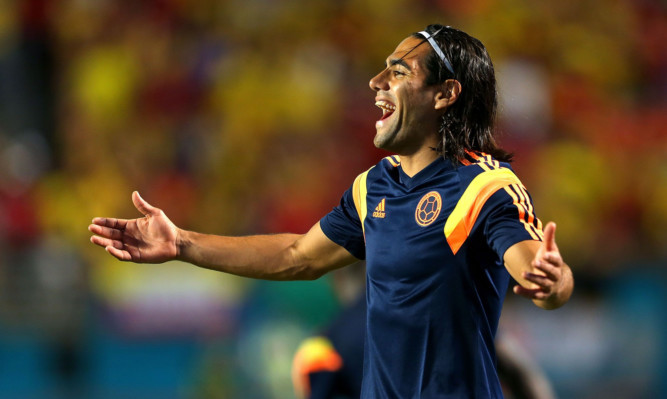
A new campaign to end “poverty wages” at Britain’s richest football clubs is launched today, The Sunday Post can reveal.
Campaigners want a fairer deal for the silent army of backroom staff who keep the elite clubs of Scottish and English soccer running.
It comes at a time the gap between star salaries and what staff like catering and ground staff earn has never been higher. Indeed, football’s lowest-paid staff will currently have to work for more than 23 years to earn what top stars like Manchester United’s new signing Radamel Falcao take home in a single WEEK.
A hard-working legion of cleaners, stewards and car parking attendants, many fans of the clubs they loyally serve, work long shifts for the minimum wage of just £6.31 per hour. Our probe discovered:
Jobs for car park attendants at Manchester City one of the world’s richest clubs with a starting rate which experts say is not enough to live on.
Recruiters offering the minimum wage for catering staff to work casual shifts at Newcastle United’s St James’ Park.
Scores of staff working at Celtic, Scotland’s richest football club, earning just a fraction above the lowest legal rate of pay.
Directors of The End Foul Pay campaign, run by the GMB union, have launched a petition calling on the English and Scottish Football Associations to get clubs to sign up to the Living Wage scheme, run by Citizens UK. It would ensure a living wage of £7.65 an hour for club staff.
None of England and Scotland’s top flight clubs are currently signed up to the scheme.
End Foul Play director Tim Roache said: “It is an outrage that professional clubs don’t already ensure workers are paid a living wage.”
One former steward, who we agreed not to name but who worked at a Premier league club in northern England, said: “It just became too much. They ask you to be there three hours before kick-off and often you are there an hour after the game. For this you get a match fee of £26. It’s difficult to justify carrying on when it pays so little.”
Manchester City and Celtic have met Living Wage campaigners and have agreed to consider paying higher wages to the lowest-paid staff.
Some have even defended paying the minimum wage to students or for those who work at football clubs as a second job. Glasgow University economics lecturer Jeanette Findlay, a member of the Celtic Trust, last year unsuccessfully demanded the club becomes a living wage employer.
She said: “They said they didn’t need to because they were a wonderful employer. It was very embarrassing for them, and us.”
Sophie Stephen, of Citizens UK, said football clubs remain “untouchable” on the issue of low pay. “The origins of these football clubs began with local families and yet now it is not paying local workers or their families the fair wages they need,” she said.
A spokeswoman for Manchester City said the club’s directly-employed staff were now being paid the Living Wage. The Sunday Post contacted Newcastle United and Celtic but neither had responded last night.

Enjoy the convenience of having The Sunday Post delivered as a digital ePaper straight to your smartphone, tablet or computer.
Subscribe for only £5.49 a month and enjoy all the benefits of the printed paper as a digital replica.
Subscribe